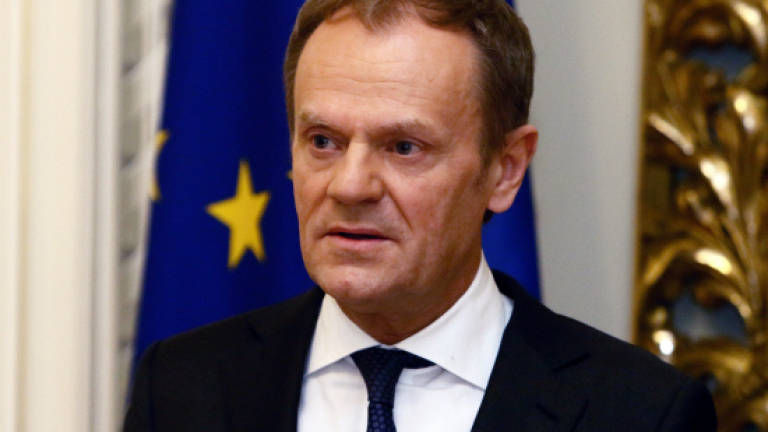Lithuania celebrates 100 years since WWI independence

VILNIUS: European leaders gather in Vilnius on Friday to celebrate 100 years since Lithuania regained independence after World War I, but amid flaring tensions with powerful neighbour Russia.
"Lithuanians have made a long journey over the last century," European Commission chief Jean-Claude Juncker said in a statement on the eve of the centenary.
"Thanks to them, Lithuania is now a modern, democratic state in its rightful place at the heart of our European Union."
The NATO and eurozone member of 2.8 million people is today firmly anchored to the West and "protected and respected like never before" according to President Dalia Grybauskaite.
Like fellow Baltic states Latvia and Estonia, Lithuania increased defence spending and welcomed troops from NATO allies after Moscow's 2014 intervention in Ukraine but Donald Trump's election as US president has since triggered new concerns regarding American defence commitments.
There remains some concern over a reasserted Russia, and Vilnius earlier this month accused Moscow of deploying nuclear-capable ballistic missiles to its Kaliningrad enclave on the Baltic.
Grybauskaite warned that the deployment in the Russian region bordering Baltic NATO members Poland and Lithuania posed a danger for "half" of Europe's capitals.
Despite Lithuania's solid economic growth of 3.9 percent last year, the Baltic state is beset by daily concerns over rising prices, social inequality and emigration to the richer west.
"Independent Lithuania's major achievement has been the creation of a genuinely stable democracy. Although changes in government have been frequent, and populist parties come and go, election results have never been challenged," said Vilnius University analyst Kestutis Girnius.
"The major challenge has been to develop a social conscience so that more Lithuanians see their homeland as the place where they can best live out fulfilling lives," he told AFP.
Top EU officials and the presidents of Estonia, Finland, Georgia, Germany, Iceland, Latvia, Poland and Ukraine, as well as Swedish Crown Princess Victoria will attend the ceremony in central Vilnius on Friday.
Bells will later toll in churches across the country for the centenary.
Medieval power
Though it was only in 1990 that Lithuania declared independence from the crumbling Soviet Union, the country is no newcomer to the map of Europe.
Lithuania's statehood stretches back to the 13th century when its first king, Mindaugas, was crowned in 1253.
Later, the Polish-Lithuanian Commonwealth was a major European powerhouse until the federation was wiped off the map in 1795 by imperial Russia, Prussia and Austria.
Until World War I, Lithuania was a province of the Russian empire, which sought to crush nationalism and even banned the Lithuanian alphabet.
The Lithuanian council declared independence on Feb 16, 1918, when the country was still under German occupation. Brief wars with Bolsheviks and Poles followed before Lithuania won international recognition in the following years.
Just in time for the centenary and to the country's delight, a Lithuanian professor unearthed the 1918 document in Berlin archives last year. Last month, it was brought to Vilnius under a five-year loan deal with Germany.
'Active and constructive'
Modern Lithuania was an independent nation between the two World Wars. Then the Soviet Union invaded in 1940, Nazi Germany invaded in 1941, and the Soviets returned in 1944.
Democracy campaigners launched an independence drive in the 1980s that eventually made it the first Soviet republic to declare independence in March 1990.
Lithuania finally won recognition from Moscow after the failed coup by hardliners in the Soviet capital in August 1991.
In 2004, Vilnius's pro-Western drive culminated with EU and NATO membership. In 2015, Lithuania adopted the euro.
Unlike certain other ex-communist countries, Lithuania has sought to avoid major confrontations with the EU, earning it praise from Brussels on the eve of its centenary.
"Only by being united can European nations be sovereign and free of dependency on the great superpowers," European Council chief Donald Tusk told reporters on Thursday. — AFP